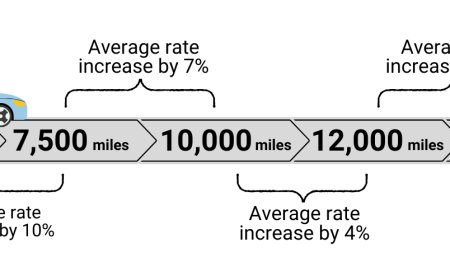Comprehensive Guide to BIS & EPR Certificate for Manufacturers and Importers
n today’s highly regulated marketplace, BIS & EPR certification has become an indispensable requirement for businesses aiming to enter and operate legally and competitively in India.

BIS and EPR certification is now a crucial need for companies looking to enter and conduct lawful, competitive business in India's heavily regulated economy. Getting these certificates guarantees legal compliance, environmental responsibility, and product quality whether you are a home producer or an importer from abroad. Every aspect of BIS and EPR certifications, including their significance, application procedures, supporting documents, and compliance requirements, will be covered in full in this guide.
BIS Certification: What Is It?
The national organization of India in charge of standardization, quality certification, and product labeling is the Bureau of Indian Standards (BIS). It guarantees that goods fulfill particular performance, safety, and quality requirements in accordance with Indian laws.
BIS Certification: Who Needs It?
Certification in BIS is required for:
IT and electronic goods covered by the CRS (Compulsory Registration Scheme)
Appliances for the Home
Steel, cement, and further building supplies
Automobile Attachments
Food Items and Water Bottles
Medical Devices, Cylinders, and Pressure Cookers
Before selling or distributing these products in the Indian market, manufacturers—domestic or foreign—must receive BIS certification.
BIS Certification Scheme Types
1. The ISI Mark System
relevant to goods that meet Indian standards. Steel, fabrics, electrical appliances, and so forth are included in this. Products undergo testing at labs accredited by the BIS, and certification follows successful compliance.
2. The Mandatory Registration Scheme, or CRS Scheme
required for IT and electronic products. Manufacturers are given permission to use the Standard Mark after products are tested in labs recognized by the BIS.
3. The Foreign Manufacturers Certification Scheme, or FMCS, is only available to international producers who wish to market their goods in India. Sample testing and in-factory inspection are part of the certification process.
Documents Needed for Factory Registration Certificate and BIS Certification
License for Manufacturing
Reports on Product Tests (from a lab approved by BIS)
Manual of Quality Control
Chart of Organization
Affirmation and Commitment
Import Export Code, or IEC Certificate
Registration of Trademarks (if applicable)
Methods for Getting BIS Certified: Determine the Product Type and Relevant Standard
Choose the Correct Certification Scheme (FMCS, CRS, or ISI).
Product Sample Testing
Get the necessary paperwork ready.
Submission of an Application via the BIS Portal
Inspection of the Factory (for ISI & FMCS)
License Grant
Using a Standard Mark on Goods
BIS License Validity and Renewal
Usually, a BIS certification is good for two years.
can be extended by sending in test reports and updated documentation.
License suspension or termination results from noncompliance.
EPR Certificate: What Is It?
An environmental policy known as Extended Producer Responsibility (EPR) holds manufacturers responsible for the full lifecycle of their goods, especially after the consumer has purchased them.
EPR is required in India by the Ministry of Environment, Forests, and Climate Change's Central Pollution Control Board (CPCB) (MoEFCC).
EPR Certification: Who Needs It?
EPR registration is required in order to:
Manufacturers (domestic producers)
Those who import
Owners of Brands
Refurbishers
Recyclers of E-Waste
Manufacturers of Plastic Packaging
Relevant to sectors engaged in:
E-waste, or electronic waste
Waste Plastic
Waste from Batteries
Waste from Tyres
Electrical and electronic equipment (EEE) included in Schedule I of the E-Waste (Management) Rules, 2022 is covered by the EPR for E-Waste category.
2. The Plastic Waste Management Rules, 2016 (Amended 2022) require an EPR for plastic waste. Reuse and recycling goals must be met by businesses.
3. The Battery Waste Management Rules of 2022 enforce the EPR for battery waste. requires businesses to gather and recycle spent batteries.
Documents Needed for GST, Company PAN, and EPR Certificate
IEC Certification
DIC/UDYAM/MSME Enrollment
Product Information and Make-Up
signed contract with the PRO or recycler
Data on Annual Sales and Imports
Consent from the Pollution Control Board (if applicable)
Procedure for EPR Registration in Steps
Make an account on the CPCB Portal
Upload the necessary files.
Utilize the Product Category to File Applications
Talk to PROs and recyclers
Examining applications by the CPCB
EPR Authorization Grant
Send in your yearly returns and compliance reports.
BIS and EPR Certification Benefits 1. Legal Compliance
Prevent fines and merchandise confiscations. fulfill the statutory standards set forth by Indian authorities.
2. Access to Markets
allows both domestic and international brands to enter Indian markets with ease.
3. Improved Image of the Brand
Certifications increase consumer trust by demonstrating responsibility, quality, and dependability.
4. Sustainability of the Environment
encourages environmentally friendly corporate practices and aids in efficient trash management.
5. An edge over competitors
Maintain a competitive edge by providing sustainable and certified products.
Penalties for Failure to Comply
Not obtaining or renewing your EPR or BIS certificates can result in:
severe financial penalties
Product prohibition
License revocation for import/export
In extreme circumstances, criminal procedures
Important Distinctions Between EPR and BIS Features Certification in BIS Regulatory Body for EPR Certification: Bureau of Indian Standards (BIS) Board for Central Pollution Control (CPCB)
Goal Assurance of Quality and Safety Application of Environmental Responsibilities and Waste Management Compliance with Product Quality End-of-life product management is required for tires, batteries, plastic, e-waste, electronics, cement, food, etc.
Product-based Activity-based Certification Type (Producer, Importer, etc.)
How Can Continuous Compliance Be Guaranteed?
Keep a close eye on modifications to BIS and CPCB regulations.
Licenses should be renewed within the allotted time.
Join forces with PROs and approved recyclers.
Keep accurate records of your imports, recycling, and production activities.
Assign a consultant or compliance officer to oversee filings and audits.
In conclusion
For contemporary companies navigating the Indian regulatory environment, both BIS and EPR certifications are essential. Getting and keeping these certifications is a calculated step that shows a dedication to environmental stewardship and product quality in addition to guaranteeing compliance. To remain relevant and accountable, companies must proactively align their operations with national standards from manufacture to post-consumer disposal.

































